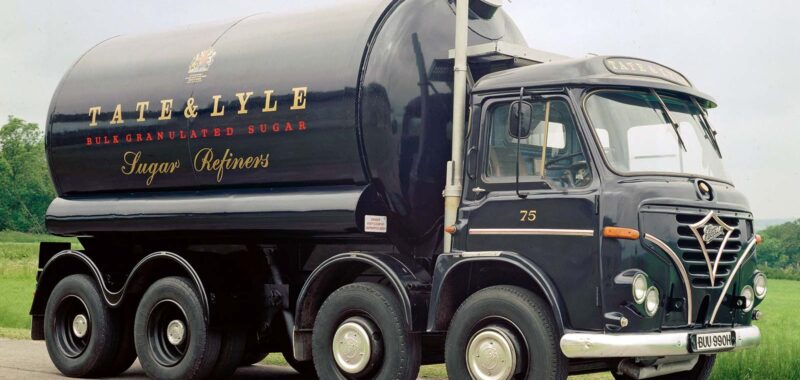The heavy goods vehicles of today are incredibly sophisticated, featuring all manner of electronic systems to keep their drivers and road users around them as safe as possible.
Not so in 1964, when an Autocar journalist rode along in an articulated lorry to discover just how different things looked from three metres up with 15 tonnes of cargo right behind, and how hard it was to thread a 22-tonne eight-wheeler through towns and get it to scale hills and safely come down again – all on a freezing December night.
The willing haulier was Silver Roadways (a subsidiary of sugar refiner Tate & Lyle), our driver a 44-year-old Cockney called Alf and our tractor a Foden with a Gardner 10.5-litre diesel six that produced 150bhp and 485lb ft of torque.
A quick aside: Cheshire-based Foden was one of the first British firms to make motorised lorries, having started out manufacturing industrial steam and traction engines in 1880. Like everything else in Britain, it all went wrong in the 1970s. American firm Paccar came to the rescue in 1980, did the same for Leyland Trucks in 1998 and axed the Foden brand in 2006.
Enjoy full access to the complete Autocar archive at themagazineshop.com
Anyway, back to 1964, and our job was to transport sugar from east London’s docks to a staging post on the A40 near Northleach, Gloucestershire.
Silver Roadways had three route destinations: Exeter, Liverpool and, our choice, Cardiff. At the Windrush cafe, we would swap our load for one of bars from South Wales’ steel mills, so that we would start and end our shift like all the other drivers back in the capital.
We arrived at Silver’s yard at 8.30pm to find drivers smoking and chatting as their lorries’ idling engines mixed acrid diesel fumes into the misty Thames-side air.
Alf, whose father had also been a lorry driver, had been on nights for 14 years. “I prefer it,” he said. “You meet all the same mates. It’s a bit like a club. But it takes a good woman to stand it. I try to make it up to my wife. I take her for three weeks’ good holiday every year.”
Having bled his reservoirs to avoid frozen airlines, he climbed into his cab at 9pm, filled out two log sheets – one for the tractor, one for the trailer – and set off into the night, the cab briefly choking our man with trapped exhaust fumes.
‘Alarming’ was the term he used for the ride comfort, explaining: “Being hinged in the middle, our [11m] overall length had very little resistance to pitch, and the tractor with only a [2.7m] wheelbase was continually being bounced about with a violent bucking motion.”
“Don’t brace yourself! Ride with the motor,” yelled an unruffled Alf over the engine roar, but try as he might have, our man was unable to stop himself lurching in and out of his seat.

